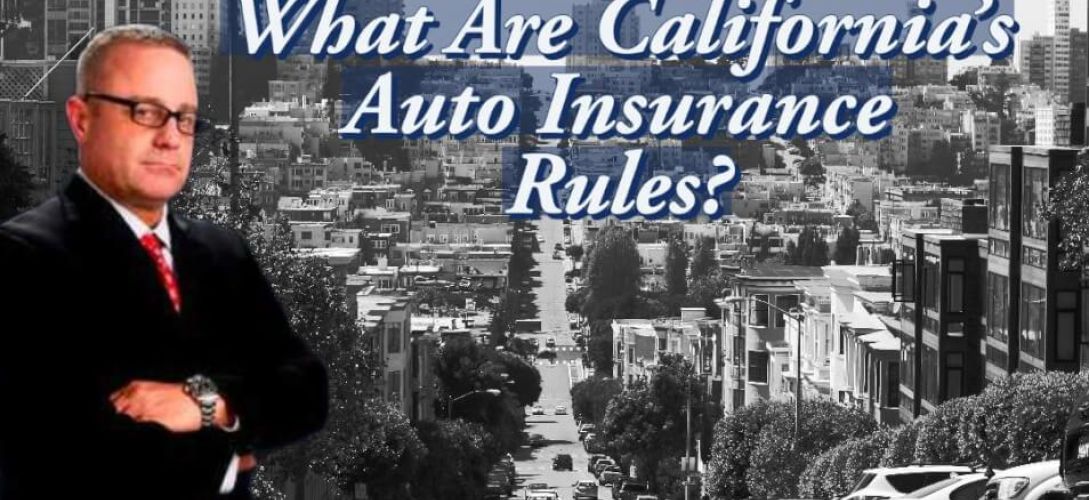
Why Won’t California Auto Insurers Disclose Policy Limits in Liability Claims?

Why Won’t California Auto Insurers Disclose Policy Limits in Liability Claims?

When you register the vehicle with any insurance company, the insurer must fully explain what the insurance policies are all about.
You need to be fully aware of the policy limits of that insurance company. So, it is the responsibility of the insurer to advise you as first-party insureds/claimants of our rights and benefits under an insurance policy as an essential part of claims adjustment.
If the Insurance Company Refuses to Help, Call Ehline Law
Shortly after a car accident in which a third party suffers an injury and seeks compensation to pay for medical bills from the at-fault driver, a demand for policy-limits information often occurs. Usually, an attorney or public adjuster contacts the insurance company seeking to get them to disclose policy limits.
Persons experienced in the process get policy limit demands, including umbrellas and excess. By failing to disclose the information, or if it is only partially disclosed, insurance companies enjoy the tactical advantage of forcing the third-party claimant to negotiate in the dark and make a demand without the benefit of knowing what is potentially available.
In third-party claims, one of the most vital types of information is the amount of money available to compensate the victim. The amount of cash potentially available is so important to some liability insurers that they guard this “policy limits” information preventing its disclosure.
Insurance Companies are Not Your Friends
One of the most valuable tools for an attorney is a policy limit demand. A timely and well-executed policy limit demand can either settle a case for most clients, for example, in personal injury cases, or force an insurance company to pay the entire verdict even if that number exceeds the defendant’s policy limit. This can happen when the insurance company refuses to settle the case within the policy limit when it has the chance. This exercise allows the liability insurer to protect its insured from an excess verdict.
Understanding How Insurance Policies Work
Whenever you purchase any liability insurance policy, there is always a policy limit. That is the maximum amount of money the insurance company is responsible for in terms of losses arising from an incident that triggers coverage.
For example, buy car insurance with a liability policy with a $20,000 limit. The insurer will pay out only $20,000 to anyone who suffers an injury and vehicle damage in an accident you cause.
If there are $50,000 in damages, the insurance company will not pay the extra $30,000. But, if the judge or jury awards this, you will have to get the rest of the amount from somewhere else.
Knowing the Insurance Policy Limits
The law mandates that drivers have automobile insurance. These policies have requirements for specific amounts. California auto insurance laws require drivers to carry at least the following auto insurance coverage:
- Bodily injury liability coverage of $15,000 per person/$30,000 per accident minimum;
- Property damage liability coverage of $5,000 minimum; and
- Uninsured motorist bodily injury coverage of $15,000 per person/$30,000 per accident minimum.
The driver who causes injuries should at least have the coverage above. Some drivers have policies over these amounts. Their coverage is most often the maximum settlement amount their insurance company will offer an injured driver.
Traditionally, liability insurance companies have refused to reveal the amount of the policy limits to third-party claimant’s pre-litigation, even though eventually they must reveal those policy limit amounts in response to formal discovery once litigation has commenced [See California’s Judicial Council Form Interrogatories, No. 4.1(e)].
The short answer to the question of when/how a liability insurance carrier operating in California must disclose policy limits information to a claimant pre-litigation is that whenever a California claimant makes a pre-litigation request for policy limits information, an insurance carrier must make a prompt written inquiry to its California insured whether or not to release policy limits information. If the insured provides that they should disclose written consent, the policy limits communication with the claimant.
Otherwise, in the absence of evidence of this sort of written inquiry to the insured, if later it gets proved that the case could have settled for, or below, policy limits pre-litigation, and there is an excess of policy limits outcome at trial, the carrier gets placed in jeopardy of lousy faith liability to its insured, and potential exposure considerably over the applicable policy limits. Why take that risk?
Therefore, disclosing or not disclosing is where an insurance company’s interests and the policyholders may diverge. Whereas nondisclosure favors the insurer’s economic interests, disclosure may serve the policyholder’s best interest because it:
- Aids purposeful settlement discussions;
- It is an essential component of evaluating a case;
- May discourage a seriously injured victim from demanding more than the policy limits; and
- May prevent litigation.
Policy Limits Demands and Settlement Demands
A demand for policy limits is not a settlement demand; instead, the plaintiff must assert that they must settle a case. If the settlement demand is within limits, the insurer rejects the request, prosecutes the case, and perhaps experiences a judgment over policy limits. But what if the insurer refuses to indemnify its own insured for the entire judgment? In that case, the insurer invites a lawsuit for bad faith refusal to settle.
Insurance companies must negotiate with an injured person in good faith and consider all the case details. The long-accepted industry standard is that a fair settlement to a claim is up to, but not above, the policy amount. The point of insurance is to cover claims. Companies do not intend to pay beyond the policy. Settlements for policy amounts are usually accepted. Only 2% of the small number of significant motor vehicle lawsuits filed in California go to trial.
Insurers deal with different aspects of claim administration daily. This day-to-day experience teaches that many claimants cannot afford attorneys to litigate on their behalf to force disclosure of the information; consequently, their claims may settle for substantially less than their actual value, benefiting the insurer.
On the other hand, some claimants who can afford it may decide that litigation is the most viable option when the insurer fails to provide policy limits. If you need help with your claim, reach the Ehline Law Firm at (213) 596-9642.
Categories

Michael Ehline
Michael Ehline is an inactive U.S. Marine and world-famous legal historian. Michael helped draft the Cruise Ship Safety Act and has won some of U.S. history’s largest motorcycle accident settlements. Together with his legal team, Michael and the Ehline Law Firm collect damages on behalf of clients. We pride ourselves on being available to answer your most pressing and difficult questions 24/7. We are proud sponsors of the Paul Ehline Memorial Motorcycle Ride and a Service Disabled Veteran Operated Business. (SDVOB.) We are ready to fight.
Go here for More Verdicts and Settlements.
